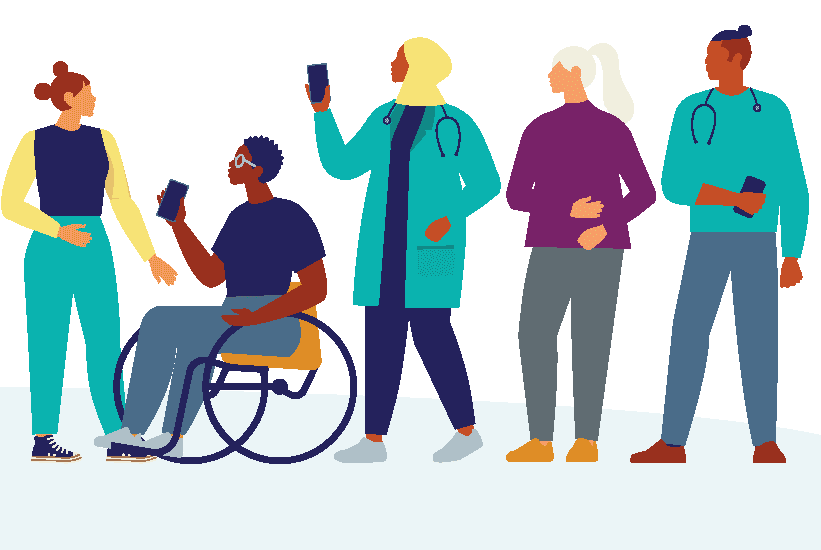
Past Mental Health, Addictions and Chronic Pain Community of Practice Sessions

Catch up with recordings and resources from our past events
Past sessions are certified as part of the Mental Health, Addictions and Chronic Pain CoP Self Learning Program where participants can earn Mainpro+ credits for reviewing past session recordings (both video and audio are available) and resources on their own time. To participate in self-learning:
Step 1: Determine which past session date(s) you’d like to review (see events below).
Step 2: Review the recordings and resources.
Step 3: Complete the self learning evaluation
This Self Learning Program has been certified by the College of Family Physicians of Canada and the Ontario Chapter for up to 1 Mainpro+Ⓡ credits for up to a total of 63 credits. Questions? Contact practisingwell@ocfp.on.ca.
Treating these conditions in an integrated way has become more demanding and complex – now more than ever. Find information to support the care you give patients – in a way that also considers your wellbeing.
Effective strategies for Benzodiazepine weaning in patient care
It is often difficult to help patients wean off benzodiazepines (benzos), especially if the patient has been using this medication for a long time and alternative treatments do not work as well for them.
Improving burnout with time management
The increased administrative burden on family doctors, along with a rise in complex patient cases, have led to extended work hours, leading to burnout within family medicine.
Strategies and tips for treating non-migraine headaches
It can be difficult to pinpoint the cause of a non-migraine headache and symptoms can be vague. If left untreated, headaches can lead to poor mood, sleep and a reduced quality of life.
Addressing patients with personality disorder
There are few treatment options for patients with personality disorders and these patients can pose a challenge for doctors and clinic staff, leading to burnout.
Helping patients manage cannabis dependencies
Legalized cannabis and the marketing of its products has led to patients experiencing an increased dependency on cannabis to manage pain and anxiety. Family doctors don’t always know when cannabis is indicated and the messaging available may come from sources with a conflict of interest.
Helpful approaches to insomnia
Insomnia can be caused by multiple factors and may require a longer appointment, but family doctors don’t always have the time. If the issue is not addressed, overreliance on sleep aids can lead to patient dependency and poor sleep can lead to substance use, as well as decreased productivity and mood.
Recognizing and treating pelvic pain in women
Women’s pain issues, including menstrual and pregnancy related pain, can often go dismissed due to a lack of training in pelvic pain. This can lead to the undertreatment of pain symptoms in women.
Breaking bad: Strategies and tips to decrease nicotine use
Smoking can cause serious health issues and is the leading cause of death among substance use disorders. Connect with your fellow family doctors as we share personal experiences with managing patients who smoke.
Navigating Stressful Interactions with Patients and Other Providers
Do you find yourself experiencing stressful interactions with patients, other physicians or allied health providers? These conversations in the workplace can leave us feeling isolated and burned out. Join our session as we share personal experiences in navigating stressful interactions, provide insights into what we’ve learned and tips for managing these situations, including how to navigate maintaining or leaving provider-patient relationships.
Helpful approaches to eating disorders
Family doctors are often the first contact patients may have with the health care system and a missed diagnosis could lead to comorbidities. Join our session to learn tips to recognize and address a potential eating disorder with a patient.
Mindful Medicine: Adapting and learning to cope with uncertainty
Although uncertainty is a common element of patient care, as doctors, we feel better when we think we have all the answers. Join your colleagues for a discussion about how to manage patients who have a complex diagnosis and share tips on time-management, resources for referrals and strategies to help manage our own feelings.
Life Beyond Trauma: A discussion on PTSD and Trauma-Informed Care
Nearly one in ten Canadians* is believed to have experienced post-traumatic stress disorder, but the condition is often missed by doctors. It can be difficult to treat other issues if underlying trauma is not addressed, leading to a frustrating experience for both patient and provider.
